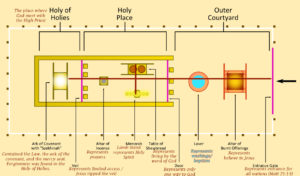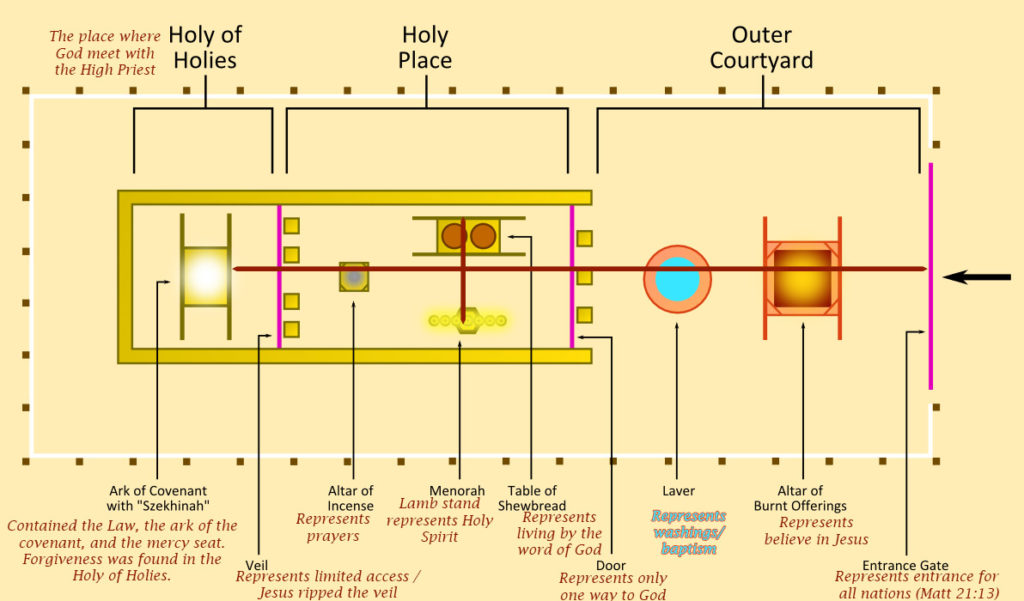Baptism in Christ Jesus
Jesus’ Teachings on Baptism. Jesus rarely spoke directly of baptism. However, in the Great Commission He calls the apostles to make disciples of all nations and baptize in the name of the Father, the Son, and the Holy Spirit (Matt 28:18–20). Early Christians came to see this Trinitarian formula as essential to a properly administered baptism. Elsewhere Jesus refers to His death on the cross in terms of baptism (Mark 10:38–39; Luke 12:50).
 Baptism in Acts. Early Christians baptized converts to the faith to signal their entrance and initiation into the Christian community (e.g., Acts 2:38–41; 8:4–13, 34–38; 9:17–19; 10:44–48; 16:11–15, 25–34). Baptism seems to have been associated with repentance, forgiveness of
Baptism in Acts. Early Christians baptized converts to the faith to signal their entrance and initiation into the Christian community (e.g., Acts 2:38–41; 8:4–13, 34–38; 9:17–19; 10:44–48; 16:11–15, 25–34). Baptism seems to have been associated with repentance, forgiveness of
sins, and the bestowal of the Holy Spirit, but not in any sort of systematic way. For instance, in Acts, the Holy Spirit is sometimes given concurrently with baptism (Acts 2:38–41), sometimes before baptism (Acts 10:44–48), and sometimes after baptism (Acts 8:4–17). The connection between baptism and the Holy Spirit seems to trace back to John’s promise that though he baptized with water, Christ would baptize with the Holy Spirit (Matt 3:11; Mark 1:8; Luke 3:16; John 1:29–34; see also Acts 1:5; Schoonenberg, “Le Baptême d’Esprit-Saint,” 74–75; Lampe, Seal of the Spirit, 44–46; Kavanagh, Shape of Baptism, 17; Kavanagh believes that the early church’s experience of Pentecost shaped its interpretation of Jesus’s baptism). Baptism seems to have been closely associated with the preaching of the gospel: Peter directs those who believe his preaching to be baptized (Acts 2:38), and Philip’s gospel proclamation leads the Ethiopian eunuch to request baptism (Acts 8:34–36).
Baptism in the New Testament Letters. Paul likewise seems to see baptism as initiation into the Church, which he understood as the body of Christ (1 Cor 12:13; Ferguson, Baptism in the Early Church, 165; Beasley-Murray, Baptism in the New Testament, 279). He presents the unity of the Church as grounded in common faith and baptism as well as the oneness of God (Eph 4:1–6), and he portrays baptism as giving everyone a common standing and status in Christ (Gal 3:26–28). Paul further associates baptism with death and burial in Christ (Rom 6:3–11; Col 2:11–15). The Pastoral Letters seem to associate baptismal washing with rebirth (Titus 3:5). At the same time, Paul warns against magical or superstitious views of baptism, stating that in itself the sacrament is no guarantee of salvation (1 Cor 10:1–10). He subordinates baptism to gospel proclamation (1 Cor 1:14–17).
1 Peter’s single explicit reference to baptism is seen as corresponding to Noah’s ark and is linked to salvation—which is not inherent in the washing but rather in the appeal to God from a pure conscience (1 Pet 3:18–22).
(Schlesinger, E. R. (2012, 2013, 2014, 2015). Sacraments. In J. D. Barry, D. Bomar, D. R. Brown, R. Klippenstein, D. Mangum, C. Sinclair Wolcott, … W. Widder (Eds.), The Lexham Bible Dictionary. Bellingham, WA: Lexham Press.)
When we consider the issue of baptism in the New Testament, we have to begin with the practice of the Old Testament washings (Heb. (6:1-3).
“The LORD spoke to Moses, saying, ‘You shall also make a laver of bronze, with its base of bronze, for washing; and you shall put it between the tent of meeting and the altar, and you shall put water in it.
Aaron and his sons shall awash their hands and their feet from it; when they enter the tent of meeting, they shall wash with water, so that they will not die; or when they approach the altar
to minister, by offering up in smoke a fire sacrifice to the LORD.’” Exodus 30:17-21

1. Please read Exodus 25:1 – 27:21 and study the parts and sections of the tabernacle on the diagram to the left.
2. Please read Hebrews 9:1-10:39 and study how Jesus is the High Priest who was baptized, entered the holy of hollies, and fulfills the Old Testament sacrificial laws.
- The burnt offering represented the sin offering
- The priest had to wash before entering the Holy of holies or he would die.
- The lamps were to be filled with oil, which represents the Holy Spirit.
- The table of Show Bread represents the Word of God
- The altar of incense represents the daily prayers
- The High Priest was to sprinkle the blood was to be sprinkled on top of the Ark. (See Leviticus 17 for Atonement.
- The Law was in the Ark of the Covenant.
- God—the Judge—sit on the ark between the two cherubim.
- Judge + Law + blood = mercy / propitiation
- The high priest made a cross as he ministered in the tabernacle
Baptism comes from the Greek word bapto. It means to “dip in or under,” “to immerse,” or “to also dye.” Baptism, bapto, was a common everyday word. The high priest in the Old Testament “washed” in the bronze laver before he entered the holy of holies.
When the ladies washed their cups, they bapto them: “such as the washing [Greek bapto] of cups and pitchers and copper pots.” (Mark 7:4)
- If a ship sunk in the sea, it was (bapto) baptized.
- Bapto, simply means immersed.
- Matthew 23:25 refers to a baptism on the outside and not the inside. Keep this in mind as we move forward.
THIS IS A STUDY OF NEW TESTAMENT PRACTICE OF JESUS’ COMMAND TO BAPTIZE
3. How did John baptize Jesus?
“After being baptized, Jesus came up immediately from the water; and behold, the heavens were opened, and he saw the Spirit of God descending as a dove and lighting on Him.” Matthew 3:16
- Because Jesus came up out of the water, we know that John immersed Him.
4. For what purpose did John baptize?
John the Baptist appeared in the wilderness preaching a baptism of repentance for the forgiveness of sins.” Mark 1:4
- For repentance and forgiveness of sins.
5. What is Christian baptism?
“Go therefore and make disciples of all the nations, baptizing them in the name of the Father and the Son and the Holy Spirit.” Matthew 28:19
- Name is singular; Father and Son are not names they are titles. The definite article in front of each title/name makes them distinct from one another. The “and” links all three with “name.” Name refers to the one character, nature, essence of God. Matthew gave this formula to the Jewish audience that had a problem with the Tri-unity of God.
“And He [Jesus] said to them, ‘Thus it is written, that the Christ would suffer and rise again from the dead the third day, and that repentance for forgiveness of sins would be proclaimed in His name to all the nations, beginning from Jerusalem.” Luke 24:47
- Luke’s formula to his Gentile audience is that repentance and forgiveness is found in Jesus’ name. The Gentiles believed in many gods. It seems that Luke wan
 ted to help everyone understand that the Savior God is Jesus.
ted to help everyone understand that the Savior God is Jesus.
“Peter said to them, ‘Repent, and each of you be baptized in the name of Jesus Christ for the forgiveness of your sins; and you will receive the gift of the Holy Spirit.” Acts 2:38
- This is similar to John the Baptist formula, except it is in the name of Jesus.
“For He had not yet fallen upon any of them; they had simply been baptized in the name of the Lord Jesus.” Acts 8:12
- Throughout Acts, the writer, Luke, focuses on each person being baptized in the name of Jesus. It appears that Matthew, by inspiration of the Holy Spirit, was teaching his audience the truth of the Trinity. And Luke was teaching his Gentile audience the truth that God operates His salvation in Jesus Christ.
- The Christian author, Melito, late in the second century writes that God is the Father, one with the Son and Holy Spirit, operates our salvation in Jesus Christ.
- Because there is no known explanation for the different formulas, I usually say ”…in the name of the Father, and the Son, and the Holy Spirit—in the name of Jesus.” I believe either formula is fine. It is not like it is a magic potion. What matters the most is what the person believes.
6. Was John’s baptism under the New Covenant or Old Covenant?
“He said to them, ‘Did you receive the Holy Spirit when you believed?’ And they said to him, ‘No, we have not even heard whether there is a Holy Spirit.’ And he said ‘Into what then were you baptized?’ And they said, ‘Into John’s baptism.’ Paul said, ‘John baptized with the baptism of repentance, telling the people to believe in Him who was coming after him, that is, in Jesus.’ When they heard this, they were baptized in the name of the Lord Jesus.” Acts 19:2-6
- John’s baptism was under the Old Covenant and people had to be re-baptized.
7. Does repentance bring forgiveness of sins, or does faith, or does baptism?
“And He [Jesus] said to them, ‘Thus it is written, that the Christ would suffer and rise again from the dead the third day, and that repentance for forgiveness of sins would be proclaimed in His name to all the nations, beginning from Jerusalem.” Luke 24:47
Jesus said, “He who has believed and has been baptized shall be saved; but he who has disbelieved shall be condemned.” Mark 16:16
“Peter said to them, ‘Repent, and each of you be baptized in the name of Jesus Christ for the forgiveness of your sins; and you will receive the gift of the Holy Spirit.” Acts 2:38
“Therefore repent and return, so that your sins may be wiped away, in order that times of refreshing may come from the presence of the Lord.” Acts 3:19
“For by grace you have been saved through faith; and that not of yourselves, it is the gift of God.” Ephesians 2:8
- The New Testament Church salvation experience did not separate belief, confession of sin, repentance, and baptism. It was all one process. For example, cooking is combining wood, fire, pots, water, and food. You cannot leave out the fire and still call it cooking.
- In the same way, belief, confession of sin, repentance, and baptism are the ingredients to begin your salvation experience. You will not find one person in the New Testament who would go against Jesus’ command and tell a person that he did not need to be water baptized. In addition, you will not find one true believer in the New Testament who refused to be water baptized.)
8. Can we obey some of God’s commands and not others?
“He who has My commandments and keeps them is the one who loves Me; and he who loves Me will be loved by My Father, and I will love him and will disclose Myself to him.” John 14:21
- We need to obey Jesus’ commands as much as possible.
9. Acts 2:37 people asked, “What must I do to be saved?”
- What is the Christian response?
Obedience = blessings - This will always be a true biblical principle.
- “Peter said to them, ‘Repent, and each of you be baptized in the name of Jesus Christ for the forgiveness of your sins; and you will receive the gift of the Holy Spirit.” Acts 2:38
- Peter gives two commands: Repent and be baptized in the name of Jesus.
- Peter gives two blessings: Sins will be forgiven and the receiving of the Holy Spirit.
- The people already believed because they wanted to know what they must do to be saved. Peter did not say, “Your belief is enough.” He gave them two commands so that they could receive two blessings.
10. If a person receives the Holy Spirit before baptism, does he still need to be baptized?
“While Peter was still speaking these words, the Holy Spirit fell upon all those who were listening to the message. All the circumcised believers who came with Peter were amazed, because the gift of the Holy Spirit had been poured out on the Gentiles also. For they were hearing them speaking with tongues and exalting God. Then Peter answered, ‘Surely no one can refuse the water for these to be baptized who have received the Holy Spirit just as we did, can he?’ And he ordered them to be baptized in the name of Jesus Christ. Then they asked him to stay on for a few days.” Acts 10:44-48
“In Him, you also, after listening to the message of truth, the gospel of your salvation—having also believed, you were sealed in Him with the Holy Spirit of promise.” Ephesians 1:13
- Those in Acts 10:44-48 were sealed in Jesus before baptism!
“Do not grieve the Holy Spirit of God, by whom you were sealed for the day of redemption.” Ephesians 4:30
- They had been sealed with the Spirit until the day of redemption.
- Even though they had the Holy Spirit they were still ordered to be baptized. Peter understood the importance of following all of Jesus’ commandments. Acts through Revelation, all believers were baptized—without exception.
11. What are biblical requirements and waiting periods for baptism?
“Then Philip opened his mouth, and beginning from this Scripture he preached Jesus to him. As they went along the road they came to some water; and the eunuch said, ‘Look! Water! What prevents me from being baptized?’ [And Philip said, ‘If you believe with all your heart, you may.’ And he answered and said, ‘I believe that Jesus Christ is the Son of God.’] And he ordered the chariot to stop; and they both went down into the water, Philip as well as the eunuch, and he baptized him. When they came up out of the water, the Spirit of the Lord snatched Philip away; and the eunuch no longer saw him, but went on his way rejoicing.” Acts 8:35-39
- The only requirement is believing with all of your heart. Without exception, everyone who confessed faith and repentance in Jesus were immediately
 baptized. There were no waiting periods and there is no other teaching found in the New Testament!
baptized. There were no waiting periods and there is no other teaching found in the New Testament!
“And he called for lights and rushed in, and trembling with fear he fell down before Paul and Silas, and after he brought them out, he said, ‘Sirs, what must I do to be saved?’ They said, ‘Believe in the Lord Jesus, and you will be saved, you and your household.’ And they spoke the word of the Lord to him together with all who were in his house. And he took them that very hour of the night and washed their wounds, and immediately he was baptized, he and all his household.” Acts 16:29-33
- All who confessed that they believed were immediately baptized. Even though it was night there was not waiting period! There were no baptism classes for the new believer to attend. Sermons included baptism, so there was no need for additional classes.
12. Who can baptize and what happens if someone is not a true believer and they are baptized?
“But when they believed Philip preaching the good news about the kingdom of God and the name of Jesus Christ, they were being baptized, men and women alike. Even Simon himself believed; and after being baptized, he continued on with Philip, and as he observed signs and great miracles taking place, he was constantly amazed. Now when the apostles in Jerusalem heard that Samaria had received the word of God, they sent them Peter and John, who came down and prayed for them that they might receive the Holy Spirit. For He had not yet fallen upon any of them; they had simply been baptized in the name of the Lord Jesus. Then they began laying their hands on them, and they were receiving the Holy Spirit. Now when Simon saw that the Spirit was bestowed through the laying on of the apostles’ hands, he offered them money, saying, ‘Give this authority to me as well, so that everyone on whom I lay my hands may receive the Holy Spirit.’ But Peter said to him, “May your silver perish with you, because you thought you could obtain the gift of God with money! ‘You have no part or portion in this matter, for your heart is not right before God. Therefore repent of this wickedness of yours, and pray the Lord that, if possible, the intention of your heart may be forgiven you. For I see that you are in the gall of bitterness and in the bondage of iniquity. But Simon answered and said, “Pray to the Lord for me yourselves, so that nothing of what you have said may come upon me.’” Acts 8:12-24
Points that we learn from Phillip’s baptisms:
Phillip was a deacon (church servant) not an elder, pastor, or bishop and he was preaching and baptizing. You do not have to be an ordained minister to baptize, but you do need to work as a team with your church.
- Acts 8:12 - All people upon belief and confession of faith were immediately being baptized. No waiting period!
- Acts 8:12-24 - Simon was baptized and immediately started to sin. This did not make Phillip baptism wrong. Simon was wrong, consequently, Simon was rebuked, not Phillip.
- Acts 8:20-22 - The Apostles rebuked Simon and told him to repent.
- Acts 8:14 - Philip was baptizing. He was working as a team with the apostles. The laying on of hands by the Apostles confirmed Phillips ministry!
- Acts 8:39 - Phillip immersed the new believers; he did not sprinkle them or pour water over them. The scriptures state, “they came up out of the water.” Phillip was in the water with them and did not use a vessel to scoop water and pour. This is Christian baptism; it is exactly how Jesus was baptized.
- Acts 8:13. Why should people who confess Jesus faith and repentance be immediately baptized? Should there be a waiting period to make sure they are sin
 cere?
cere? - “When anyone hears the word of the kingdom and does not understand it, the evil one comes and snatches away what has been sown in his heart. This is the one on whom seed was sown beside the road.” Matthew 13:19
- Read Matthew 13:1-58 in context! New believers should be immediately baptized upon confession of faith. Do not give Satan opportunity!
- “For by grace you have been saved through faith; and that not of yourselves, it is the gift of God.” Ephesians 2:8
- Salvation is a free gift. A person cannot earn it, so do not make them try to earn the right to be baptized. Baptism is part of the free gift, besides, no one is righteous enough on their own to deserve to be baptized! Baptism is an act of submission.
- People who sin after their baptism need to be dealt with in a loving way. No new believer lives sinless after baptism. All continue to make mistakes. Love them, rebuke (correct and teach) them, disciple them.
14. When was Saul (Apostle Paul) saved?
Acts 9:1-19
“…and he fell to the ground and heard a voice saying to him, ‘Saul, Saul, why are you persecuting Me?’ And he said, ‘Who are You, Lord?’ And He said, ‘I am Jesus whom you are persecuting, but get up and enter the city, and it will be told you what you must do.’ The men who traveled with him stood speechless, hearing the voice but seeing no one. Saul got up from the ground, and though his eyes were open, he could see nothing; and leading him by the hand, they brought him into Damascus. And he was three days without sight, and neither ate nor drank. Now there was a disciple at Damascus named Ananias; and the Lord said to him in a vision, ‘Ananias.’ And he said, ‘Here I am, Lord.’ And the Lord said to him, ‘Get up and go to the street called Straight, and inquire at the house of Judas for a man from Tarsus named Saul, for he is praying, and he has seen in a vision a man named Ananias come in and lay his hands on him, so that he might regain his sight.’ But Ananias answered, ‘Lord, I have heard from many about this man, how much harm he did to Your saints at Jerusalem; and here he has authority from the chief priests to bind all who call on Your name.’ But the Lord said to him, ‘Go, for he is a chosen instrument of Mine, to bear My name before the Gentiles and kings and the sons of Israel; for I will show him how much he must suffer for My name’s sake.’ So Ananias departed and entered the house, and after laying his hands on him said, ‘Brother Saul, the Lord Jesus, who appeared to you on the road by which you were coming, has sent me so that you may regain your sight and be filled with the Holy Spirit.’ And immediately there fell from his eyes something like scales, and he regained his sight, and he got up and was baptized; and he took food and was strengthened.” Acts 9:4-9
Points on Saul’s (Apostle Paul) conversion:
- Acts 19:4 - Jesus called Saul

- Acts 19:5 – Saul recognized Jesus as Lord and called Him “Lord.”
- Acts 19: 8 Saul obeyed his Lord Jesus
- Acts 19:8 - Saul fasted water and food for three days. This is equal to a 40 day food fast. People cannot live more than three days without water. This combined with Saul’s obedience to obey Jesus and go to Damascus displays faith and repentance.
- Acts 19:11-12 Saul prayed, God showed him a vision about upcoming events.
- Acts 19:17-19 - Saul was healed
- Acts 19:17-19 - Saul was baptized
- After all these things, why did Saul have to be baptized? Read Paul’s testimony in Acts: Ananias told Saul, “Now why do you delay? Get up and be baptized, and wash away your sins, calling on His name.” Acts 22:16
- Saul still needed to be baptized.
Belief, confession of sins, repentance, and baptism work together as the first steps in a person’s salvation experience.
The following verses declare the spiritual beauty of baptism:
- Galatians 3:27 - Baptism clothes you with Jesus and His righteousness.
- Romans 6:4 - Baptism buries you with Jesus in His death
- Romans 6:5, Romans 6:8, Romans 6:11 - Baptism unites you with Jesus in His resurrection
- 1 Corinthians 12:13 - Baptism places you in the body of Jesus
- Colossians 2:12 - Baptism pictures your death and new life in Jesus
- 1 Peter 3:21 - Baptism saves you
- Titus 3:5 - Baptism is the washing of regeneration
- Hebrews 10:22 - Baptism gives you confidence to draw near to God
- Ephesians 4:5 - There is only one baptism
It is my opinion that Jesus’ command to baptize needs to be taught and emphasized in every message to non-believers. If it is not, then it is an incomplete message that gives Satan an opportunity to steal the seed of the gospel.
15. Did the apostles of the first century Church baptize infants?
Cornelius Household, Acts 10:46-48 - “For they were hearing them speaking with tongues and exalting God. Then Peter answered, ‘Surely no one can refuse the water for these to be baptized who have received the Holy Spirit just as we did, can he?’ And he ordered them to be baptized in the name of Jesus Christ. Then they asked him to stay on for a few days.”
- Each person was old enough to listen, believe the message, receive the Holy Spirit, and speak in tongues.)
The Jailer and his household, Acts 16:31-34 - “They said, ‘Believe in the Lord Jesus, and you will be saved, you and your household.’ And they spoke the word of the Lord to him together with all who were in his house. And he took them that very hour of the night and washed their wounds, and immediately he was baptized, he and all his household [believed].”
- All were old enough to believe!
Crispus and his household, Acts 18:8 - “Crispus, the leader of the synagogue, believed in the Lord with all his household, and many of the Corinthians when they heard were believing and being baptized.”
- Again, all were old enough to believe.
The household of Stephanas, I Corinthians 1:16 & 16:15 – “Now I did baptize also the household of Stephanas; beyond that, I do not know whether I baptized any other.”
“Now I urge you, brethren (you know the household of Stephanas, that they were the first fruits of Achaia, and that they have devoted themselves for ministry to the saints).”
- All were old enough for ministry.
Lydia’s household was baptized, Acts 16:14-40 - “They went out of the prison and entered the house of Lydia, and when they saw the brethren, they encouraged them and departed.”
- This is the only example in which the scripture is silent on the fact that all believed before baptism. Questions we must ask: Was Lydia married? Did she have children? Did she have infants? Were these infants baptized? One must know these answers before stating that infants were baptized by the Apostles.
- In addition, the term brethren in verse 40 seem to refer to Lydia’s household being older. The Bible clearly demonstrates that a person must be old enough to understand the effects of sin and why God had to send His Son to bear the consequences of sin so that they can repent, believe, and be baptized. More on this subject in the Age of Accountability Teaching.
16. How can we be doers of the word?
“But prove yourselves doers of the word, and not merely hearers who delude themselves. For if anyone is a hearer of the word and not a doer, he is like a man who looks at his natural face in a mirror; for once he has looked at himself and gone away, he has immediately forgotten what kind of person he was.” James 1:22-24
Points to remember about baptism:
- Baptism was a common word meaning to be immersed.
- To follow the biblical pattern, everyone that confesses with his or her mouth that Jesus is Lord and have repented of sin should immediately follow the Lord in baptism.
- Baptism is not a work. The person who is being baptized is inactive (passive). Consequently, baptism is a sign of submission.
- I Corinthians 1:11-17 - Paul had other Christians to baptize for him. (You do not have to be a pastor to baptize, but your church needs to know what you are doing!)
- Baptism was done in the name of the Father, Son, Holy Spirit…in the name of Jesus. Jesus means Savior.
- History records that Roman 6:4 was quoted when people were baptized.
- “Do I have to be baptized to be saved” was never asked in the New Testament as it was part of the initiation process! Above everything that is taught about baptism, one must note that baptism is a command from the lips of our Lord Jesus Christ. Commands are not optional and are to be obeyed when understood.
- “Buried with Him through baptism into death, so that as Christ was raised from the dead through the glory of the Father, so we too might walk in newness of life.” Romans 6:4
18. What are the results when a believer chooses to love, trust, and obey Jesus?
Scripture By grace, through faith, repentance, and baptism, believers are united with Jesus:
Romans 6:23
Galatians 2:20 - in his death;
Romans 6:4 - in His burial;
Romans 6:5,8,11 - in His resurrection;
Ephesians 2:6 - in His ascension to Heaven;
Romans 5:10-11 - in His life;
Ephesians 1:19, 20 - in His power;
Romans 8:16,17;
Ephesians 1:11-12 - and in His inheritance.
- Sometime before Jesus, the Jews started baptizing their converts. It was baptism by immersion.
- A Jewish sect that lived next to the Dead Sea baptized their converts by immersion.
- Greek mystery religions and other religions baptized their converts by immersion.
- Christian baptism is also by immersion. The big difference between Christian baptism and other religions is that it was done immediately upon confession of faith and repentance. The other religion made you bear fruit of repentance “before they baptized” the person.
- For Christianity, baptism is submission to Christ’s command. It is not a work; it is part of the free gift of salvation in Christ Jesus.

